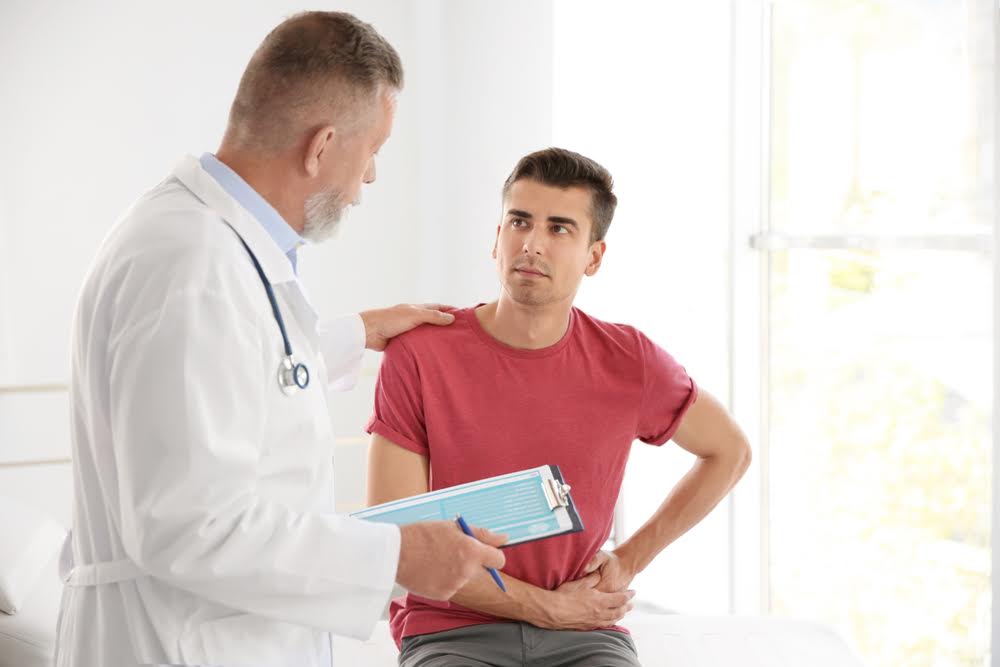As men age, their chances of developing enlarged prostate increases. With an enlarged prostate, it’ll be challenging for men to urinate because the flow of urine from their bladder will be blocked.
Over time, an enlarged prostate can develop into kidney problems and urinary tract infections. Fortunately, all is not lost because there are different ways on how you can treat an enlarged prostate. Because of the advent of technology and the increase of men who are suffering from an enlarged prostate, different treatments can now be accessed.
Here are some of the ways you can treat enlarged prostate:
1. Medicines
Contrary to popular belief, going under surgery isn’t the only option you have in treating an enlarged prostate. Today, there are actually different types of medicines that allow you to treat enlarged prostate and even manage its symptoms – Prostagenix is just one of them.
The medicines used to treat enlarged prostate are divided into two types, which are:
- Alpha-blockers: These medicines work by relaxing the muscles in the prostate and opening of the bladder. These properties allow you to urinate easily, minimizing any discomfort or burning sensation caused by an enlarged prostate. Although alpha-blockers can’t completely cure enlarged prostate, these medicines can relieve symptoms, allowing you to function better.
- 5-alpha-reductase inhibitors (5ARIs): Unlike the alpha-blockers, the 5ARIs work by slowly shrinking the prostate and prevent it from pressing against your urethra. As a result, it’ll be easier for you to urinate. Continued use of this medicine can shrink the prostate in your body by around a quarter. The longer you use 5ARIs, the smaller the prostate will get.
Depending on the gravity of your case, you can also be advised to take both types of medicines. This is called a combination treatment.
During your medication, you’re expected to regularly visit your doctor to check if the symptoms
are indeed becoming minimal and if you’re experiencing any side effects from the medicine. Based on the reaction of your body, you might be advised to continue or discontinue the use of these drugs.
2. Lifestyle Changes
If you fear you have higher chances of developing enlarged prostate because of your genetics, work on changing our lifestyle. These changes can go a long way for you to live a life that’s free from any discomfort associated with an enlarged prostate.
Here are some simple life changes that can help you steer away from experiencing enlarged prostate and its symptoms:
- Drink more water: Liquid is good for the body because it helps your organs function and keeps you hydrated. However, stuffing your body with alcohol, caffeine, fizzy drinks, and drinks that has artificial sweetener won’t provide any of these benefits. On the contrary, regularly consuming these drinks will only irritate your bladder, worsening any symptoms caused by an enlarged prostate.
- Empty your bladder before leaving the house: When you’re scheduled to travel for hours, empty your bladder before leaving your home. Make sure that you have access to public toilets, as well. Never hold any urges to pee.
- Check your medicines: If you’re currently taking any types of medication, visit your doctor and inquire if these are making your urinary symptoms worse. If they are, ask for alternatives.
- Eat more fruits and foods that contain fiber: Consuming fruits and any food that contains fiber can help you avoid constipation. Once you’ve added these foods in your diet, it’ll be easier for you to empty your bowels, and avoid putting pressure on your bladder.
- Practice double voiding: After urinating, take a few minutes and try to pee again. This practice allows you to properly empty your bladder.
3. Surgery
If regularly taking medicines and changing your lifestyle doesn’t do anything to manage the symptoms of an enlarged prostate, surgery might be your last resort. Although expensive, surgeries usually provide immediate relief from symptoms of an enlarged prostate and ensure that the problem doesn’t become worse over time.
Here are some of the most common surgeries used to treat an enlarged prostate and its symptoms:
- Transurethral Resection of the Prostate (TURP): In this surgery, a visual and surgical instrument will be inserted at the tip of your penis. Using this instrument, the doctor trims away any excess prostate that might have blocked the flow of urine.
- Holmium Laser Enucleation of the Prostate (HoLEP): This is a laser surgery that removes all the blockages of urine from a man’s body. Unlike TURP, this surgery is done without making any incisions in the body.
- Transurethral Vaporization of the Prostate (TUVP): This is a more advanced version of the TURP. During this procedure, a rollerball is used to heat the prostate tissue in the body so it can be reduced into vapor.
Seek Professional Advice
Before you try out any remedies in treating an enlarged prostate, make sure that you ask approval from your doctor first. Never consume or try out anything unless your doctor tells you to do so. Going against their instructions can only do more harm than good to your health.








